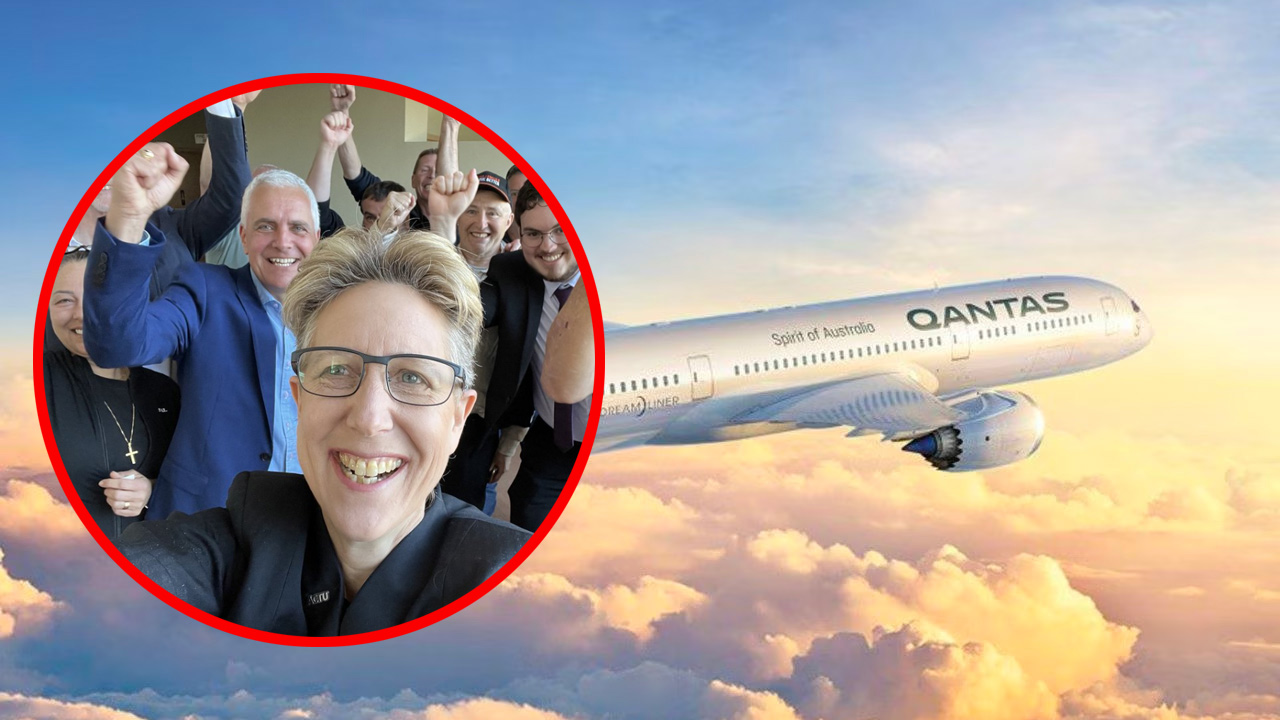Jubilant scenes as High Court hands down judgment against Qantas

In a landmark decision that saw former employees pumping their fists in celebration inside the courtroom, Qantas has issued a formal apology to its workforce after the High Court declared its actions unlawful when it terminated the employment of over 1,700 ground crew members during the COVID-19 pandemic.
The court upheld two prior rulings from the Federal Court that deemed the airline's outsourcing of baggage handlers, cleaners and ground staff to be in violation of the law.
The judgment delivered by Justices Susan Kiefel, Stephen Gageler, Jacqueline Gleeson, and Jayne Jagot underscores that taking "adverse action against another person for a substantial and operative reason of preventing the exercise of a workplace right by the other person contravenes (part of section 340 of the Fair Work Act) ... regardless of whether that other person has the relevant workplace right at the time the adverse action is taken."
In essence, Qantas could not evade the law by taking such actions before the employees possessed the specific workplace rights the airline sought to obstruct.
Australian Council of Trade Unions secretary Sally McManus, who was there for the judgment's announcement, posted a celebratory photo on social media, declaring, "The workers win against Qantas in the High Court. We will always have the backs of workers, well done @TWUAus"
The workers win against Qantas in the High Court. We will always have the backs of workers, well done @TWUAus pic.twitter.com/wvZr7ouULX
— Sally McManus (@sallymcmanus) September 13, 2023
This legal battle began when the Transport Workers' Union brought a case against Qantas in the Federal Court, asserting that the airline had violated the Fair Work Act by outsourcing its ground operations to circumvent enterprise bargaining rights. Qantas, which had laid off workers in 2020, suffered significant financial losses due to the pandemic's severe impact on the aviation sector.
In its response to the High Court's decision, Qantas clarified that it made the decision to outsource its remaining ground handling function in August 2020, at a time when borders were closed, lockdowns were widespread, and COVID-19 vaccines were not yet available.
The airline stated, "The likelihood of a years-long crisis led Qantas to restructure its business to improve its ability to survive and ultimately recover."
Qantas then expressed deep regret for the adverse personal impact this decision had on the affected employees and offered an apology:
"As we have said from the beginning, we deeply regret the personal impact the outsourcing decision had on all those affected and we sincerely apologise for that.
"A prior decision by the Federal Court has ruled out reinstatement of workers but it will now consider penalties for the breach and compensation for relevant employees, which will factor in redundancy payments already made by Qantas."
The airline outsourced the positions of baggage handlers and cleaners at ten airports in response to a drastic decline in business, citing sound commercial reasons as the motivation, as its operations had plummeted by over 90 percent.
However, the Transport Workers' Union argued that Qantas had also sought to preempt industrial action once business returned to normal, contending that the dismissals were in violation of the Fair Work Act, which prohibited actions impeding workers' rights.
After losing twice in the Federal Court, Qantas escalated the case to the High Court, which was tasked with determining whether the workers possessed the rights claimed by the union at the time of the outsourcing decision. The unanimous decision of the High Court now paves the way for the workers to pursue compensation.
Images: Twitter (X)
